Steemit + the Bauhaus Movement : “A Connective Work of Art”
"Gesamtkunstwerk"
... is a favorite phrase of mine when it comes to the Bauhaus School of thought. The German word translates to; "total work of art." Gesamtkunstwerk became a provocative tag-line for the Bauhaus movement that first launched in 1919. It implied a new and connective style of education that moved beyond individual trades and embraced an interdisciplinary understanding of “craftsmanship.”
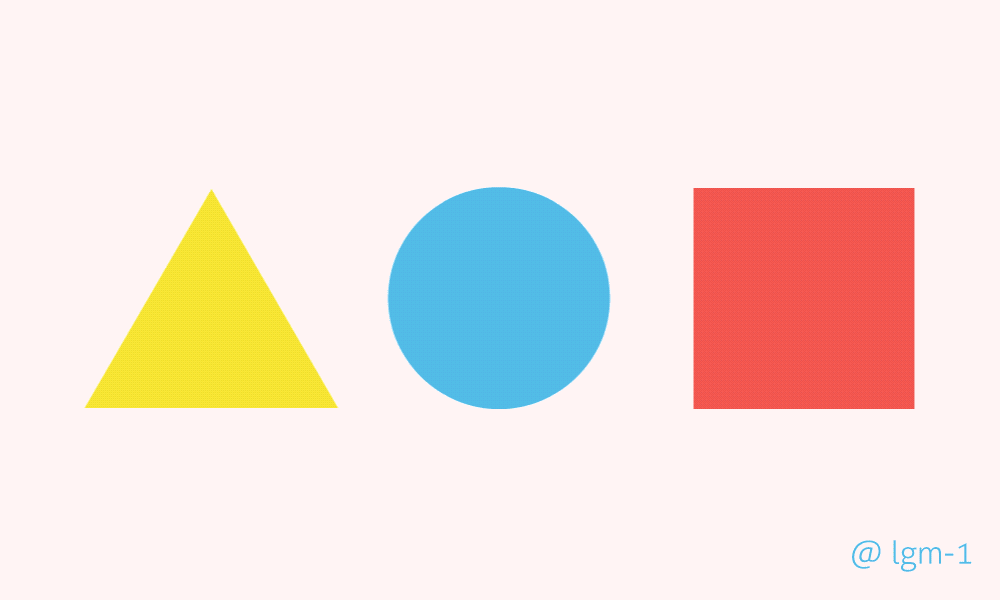
Like the Bauhaus movement, Steemit seeks to empower the value of connections. “Links” (as the Steem White Paper describes) generate a relationship between consumer and producer that strengthens the overall network. “The more links a network has, the more valuable the information becomes.” Similarly, Gesamtkunstwerk implies that value is all about sharing and comprehension. Through the creation of a building, the Bauhaus student must be fluent in understanding the design of all the parts as they come together (hence “total”). An architect must also be the engineer, the engineer must also be the artist that paints the walls, the artist must also lay the electrical wire, and the electrician must be a graphic designer. The more connections one has in the process of making, the greater your total craft will be.
“Links can take many forms and have adapted over time. Every time a user votes on content in a social network they add a link between themselves and the content. This in turn links the consumer to the producer through the content. The more links a network has the more valuable the information becomes. It is the relative and intentional connectedness of information that gives it value.” (Page 41 of Steem White Paper)
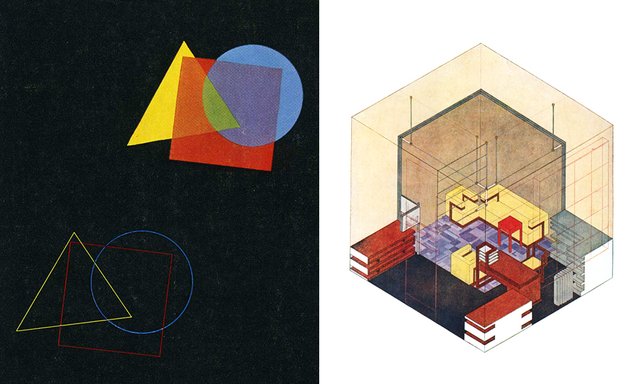
So Wait, What Exactly is the Bauhaus?
Bauhaus literally translates to "Construction House" or "the school of building." It was in fact, a school. Founded in 1919, Walter Gropius (a pioneer of modernist architecture) served as its first director. Alongside Gropius; the school kicked off with a wide and un-traditionally-ranging faculty in Johannes Itten (a Swiss painter), Lyonel Feininger (a German-American painter) and Gerhard Marcks (a German sculptor.) The student-body contained students from all socioeconomic backgrounds and trades, purposefully creating a blend of disciplines that you could not find in any other college / university at the time. Gropius introduced his first class in the Spring of 1919 with an exhibition titled; "Exhibition of Unknown Architects" with the goal; "to create a new guild of craftsmen, without the class distinctions which raise an arrogant barrier between craftsman and artist."
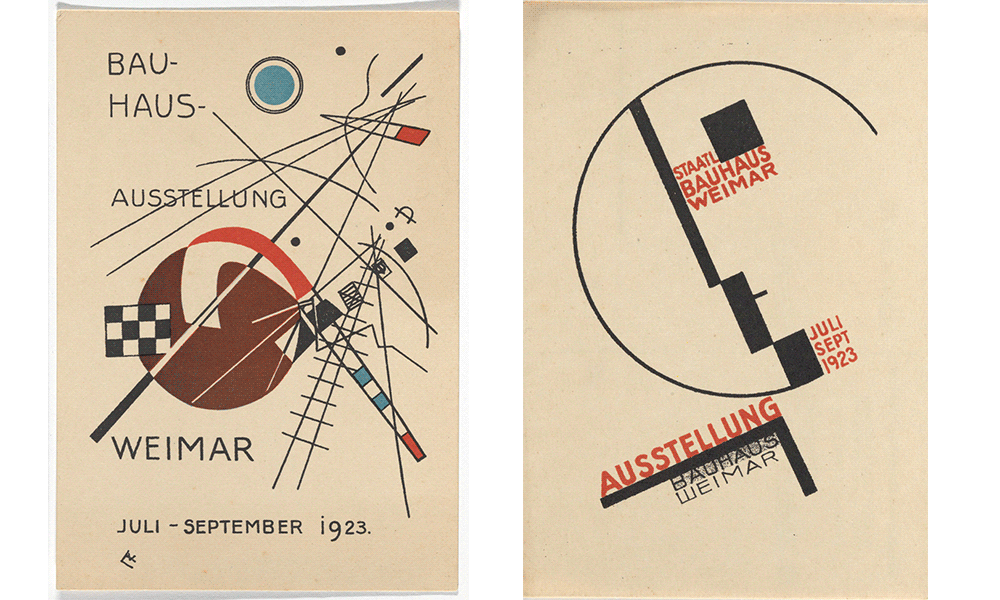
(Above) postcards issued from the Bauhaus promoting exhibitions and events.
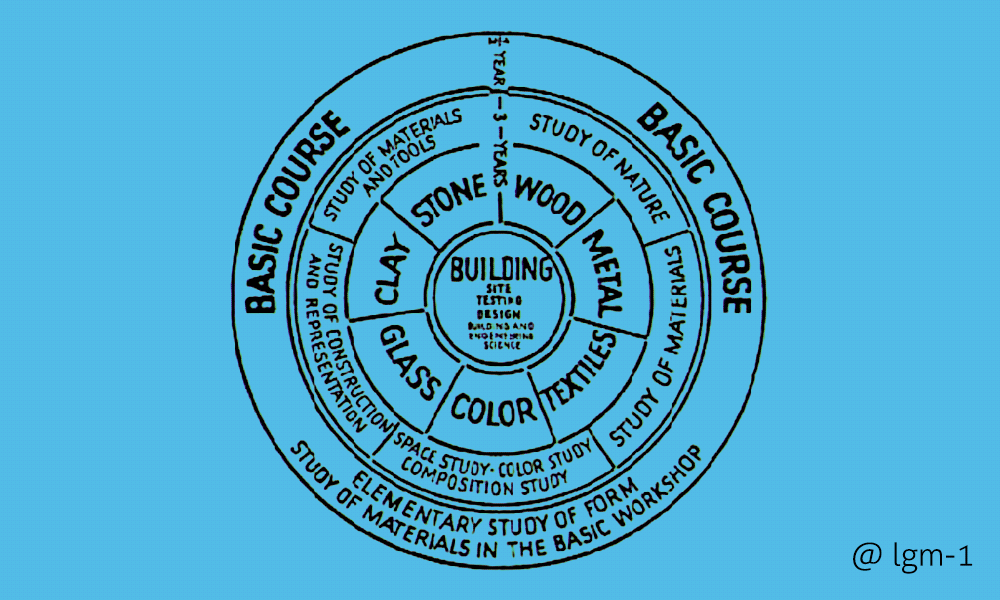
The movement grew to absorb the influences of masons, textile workers, glass blowers, product designers and more. The traditional class structure was altered to be more holistic and comprehensive. (Schedule diagram, above.) Students were taught how to build using different materials and how those materials related to the built environment, as well as the natural. In 1922 the Bauhaus family grew with the inclusion of renowned painter Paul Klee, in addition to Oskar Schlemmer (designer) and Wassily Kandinsky (Russian painter).
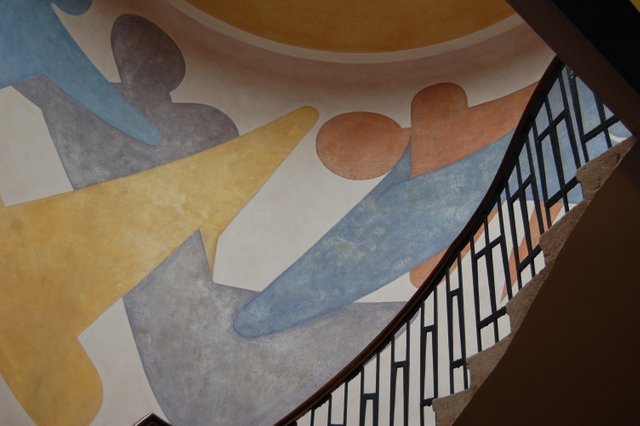
(Above) a mural by Oskar Schlemmer in 1923. (Photography by lgm-1)
The Bauhaus School moved from its original post in Weimar (Germany) to Dessau in 1925, and finally Berlin in 1930. With World War II on it’s doorstep, the school was constantly being confronted by the Nazi regime, being dubbed as “degenerate artists” and for promoting “communist intellectualism.” Then director; Ludwig Mies van der Rohe was forced to close the school in 1933.
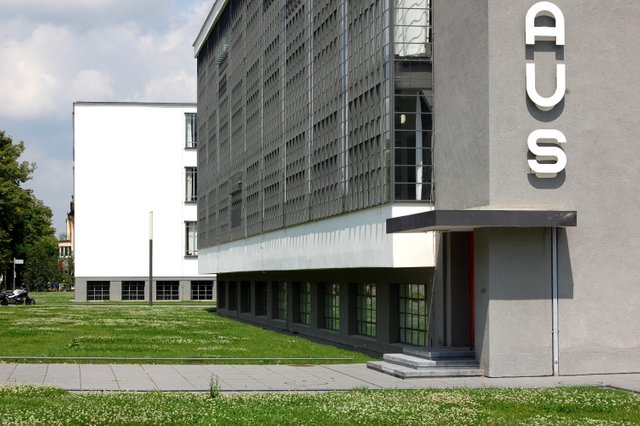
(Above) Workshop building in Dessau, with text designed by Herbert Bayer… (Photographs by lgm-1)
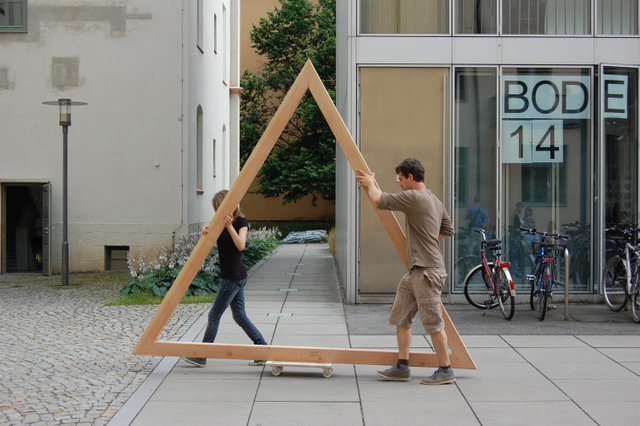
Why the Bauhaus Resonates Today...
Because more than ever; collaboration generates value. Post-Bauhaus, now nearly 100 years later, we have blockchain... And with the advent of blockchain, you can see similarities in the philosophy of "total work." In both, the community-process of exchange is equally sacred as the final product. Through blockchain technology; Steemit is building an unprecedented library of interdisciplinary information, just as the first students of the Bauhaus movement were taught to do. So, could Blockchain be the beginnings of a digital Bauhaus? It might be too early to tell... but here, knowledge of craft is valuable, and that's exciting to watch!
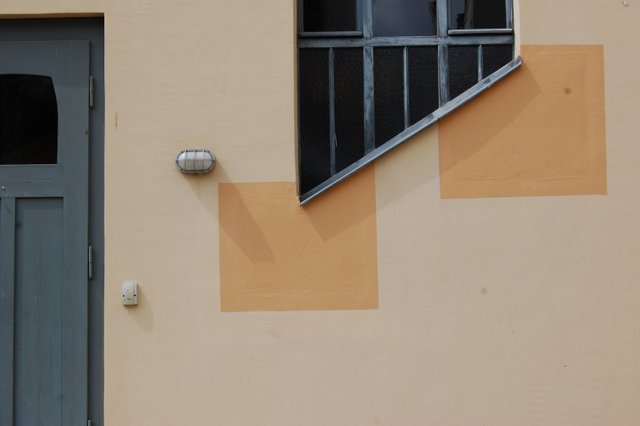
(Photography by lgm-1)
Thank you fellow Steemians, I hope you enjoyed this post! Check out my page for more on art, technology and architecture.

I love the first gif
You had my upvote at that point. Then I enjoyed the article which gained my follow.
Thank you!! I'm happy it hooked you in, I had some fun with that one... :)
Great stuff as always. Steemit signals the New Renaissance! Lol.. anyway, you should have a small note at the end to remind for follows..
Full steem ahead! (pun intended)... Yes, I need to add one of those. I absolutely will for my next post. Thanks again Kevin!
Great article @lgm-1, resteemed!
Awesome, thank you!
Cool article!
Thanks!
nice work
Thanks alfaman!
This post has been linked to from another place on Steem.
Learn more about linkback bot v0.4. Upvote if you want the bot to continue posting linkbacks for your posts. Flag if otherwise.
Built by @ontofractal